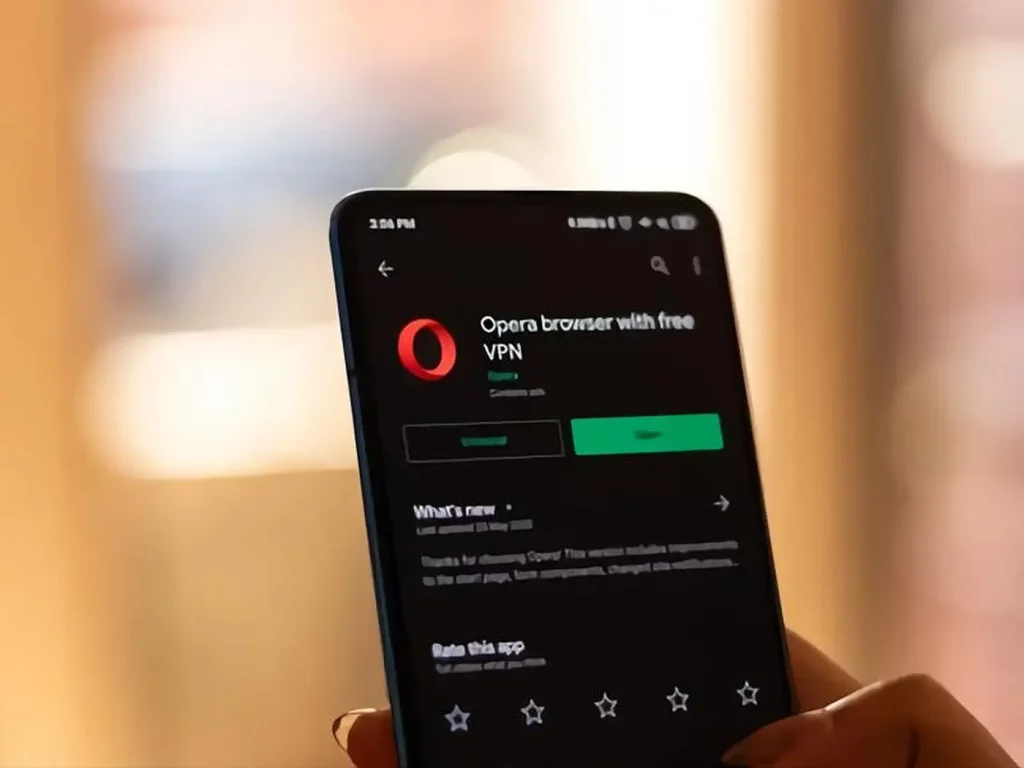Virtual Private Networks (VPNs) have become an essential, must-have tool to go online safely — almost as crucial as your ISP. But running a VPN on your computer or device needs a little tweaking. For instance, mobile devices need an app specific to your chosen provider, whereas desktops or laptops require you to install a VPN client. VPN browser extensions obviate this requirement by quickly integrating with your browser, regardless of your device or operating system.
This article will tell you about the best VPN browser extensions out there. But, since all the providers mentioned here offer native VPNs, you can easily choose the option you like best.
How to use a VPN browser extension
If you’ve used a browser extension of any type, you’ll find that using a VPN plugin is exceedingly easy. Just follow the next few steps:
- Sign up with a VPN provider that offers browser plugins. Our no.1 recommended VPN with browser extensions is NordVPN. It’s not a standard feature in the VPN industry, but each option in our list has one.
- Install the plugin in the browser you want to use.
- Open the VPN plugin. Login in with your credentials.
- Select a server within the VPN network and connect to it.
Best VPN browser extensions in 2022 – Quick list
Maybe you are already conversant with VPN browser extensions and want the right names. Then, this is the section you need to read. However, if you need or want more details, scroll down to find all about our preferred VPNs with browser plugins.
- NordVPN. It’s fast, secure, has an extensive server network and many additional features.
- ExpressVPN. The best-established name in VPN land couldn’t fail to have a browser extension.
- Surfshark. Low cost, high quality, this VPN is disrupting the industry.
- Private Internet Access. If you like to do torrenting in your browser, this is the best option. It also has the largest network in the VPN business.
- VyprVPN. This Swiss VPN offers optimal speeds. Also, it offers the best Chrome extension VPN.
These five vendors have two things in common: they are among the best VPNs on the internet, and they all have browser extensions. Each of these options is worth joining on its own merits. It’s a happy coincidence that they also have the best browser extensions.
What is a browser VPN?
A browser VPN is just a browser add-on that provides you with almost all the functionalities you expect from a VPN.
Browser VPN extensions also encrypt and anonymize your web traffic like standard VPNs. But they are different from web proxy extensions in that they are convenient to use since you do not have to install any additional software. Instead, you can swiftly download and install the VPN plugin to your preferred browser. Therefore, you can enable and disable it at will and protect your web traffic with your VPN’s encryption and IP masking.
However, notice that we wrote “web traffic.” The standard VPN implementation encrypts every bit of traffic going in and out of your device (FTP, torrents, games, other apps, anything). However, web browser VPN extensions only protect your web traffic; the rest will remain unencrypted and show your accurate IP address. So, if you want full VPN tunneling, you must use your VPN app.
Advantages and disadvantages
Let’s start with the pros.
There are a variety of VPN browser extensions available for browsers, including subscription-based ones from some of the most trustworthy providers.
In addition, there are many free ones you can choose from that do not require a monthly subscription.
Installing and using browser extensions is easy. First, you need to download the extension, which will appear in your browser’s bar.
Let’s now examine the disadvantages of using a VPN browser extension.
An extension is not always an actual VPN, which is one of its most significant disadvantages. In addition, compared to a standalone VPN plan, most extensions don’t offer one of the notable benefits: military-grade data encryption.
Furthermore, some VPN extensions may be maliciously designed to steal personal information.
The above makes it unlikely that using an extension will provide you with the level of protection you need. Your data may be at risk in some cases.
Best VPN with browser extensions today – Detailed list
We ran a few tests on all the VPN services we know to find the best options in the browser extension arena. Unfortunately, the task is not as straightforward as you think because not every VPN makes browser extensions. Moreover, not every browser extension will be worth it for you. Instead, even an excellent browser plugin would sometimes serve you with an awful VPN service. So it’s all about finding the right balance.
We found the best VPN browser extensions by considering these factors.
- The provider makes and supports browser extensions and native VPN apps and clients.
- Extensions are secure and stable.
- The network speeds remain fast when connected through the browser plugin, and server switching is also quick.
- VPN can circumvent geolocation restrictions using the browser extension alone.
- The vendor offers other excellent features.
So here are the chosen ones.
1. NordVPN

Its extensions for Microsoft Edge, Chrome, and Firefox protect all your browser traffic from prying eyes. Thus, you remain safe even upon visiting an unsafe website.
Pros
- Has fast servers
- Allows P2P traffic
- Boasts huge server network
Cons
- Comparatively slow speed on Malaysia server
Whenever we’re testing VPNs to find the best option for any task (torrenting, obfuscation, bypassing censorship, and other things), we keep finding that NordVPN is a step ahead of the rest. So it wasn’t a surprise when we saw that it’s also the best one where browser extensions are concerned.
The NordVPN browser extension allows you to choose a server in a specific place. Or, you can click on “Auto connect,” and it will select the best server in your vicinity. However, you can’t pick a specific server as you do with the desktop client. The extension will also block ads and malware, adding another layer to your web security.
An exciting feature of this extension is the option to turn WebRTC off. WebRTC is a video communications protocol that allows two browsers to connect to exchange audio and video. While this protocol may sound incredible, the problem is that it uses both browsers’ IP addresses to create the link. And this is where the problems arise because one of the most common IP leak scenarios comes about. After all, WebRTC broadcasts the IP to the world.
The browser extension is more feature-rich than the rest in the market. One excellent feature is “CyberSec,” which keeps you away from malware-hosting websites. While it could not be pleasant for suggestive users, it’s suitable for the average web surfer.
NordVPN has the highest privacy, security, and anonymity standards. Also, it offers many additional features such as server obfuscation, multi-hop connections, onion over VPN servers, etc. Moreover, if there’s a VPN that can bypass the geolocation blocks of every video streaming platform, this is the one.
NordVPN has browser plugins for Google Chrome, Mozilla Firefox, and Microsoft Edge. The plugins are light and fast.
2. ExpressVPN

On top of making your VPN use easy, ExpressVPN’s addon also offers additional security and privacy features like WebRTC blocking.
Pros
- Fast speeds across all VPN locations
- Torrenting friendly option
- Boasts colossal number of server locations
Cons
- Has above average prices
NordVPN is the best VPN nowadays, but ExpressVPN has been the best service for an extended time. However, for good reasons, it’s still the preferred VPN for many experts and reviewers.
ExpressVPN‘s browser extension is a different animal altogether, as it’s not self-contained software. Instead, it’s something like a remote control for the VPN’s native app, meaning that you must have the app installed previously on your chosen device, or it will do nothing. However, there is an advantage to ExpressVPN’s approach: instead of having only your web traffic within the VPN tunnel, since the full app is online, all your traffic gets secured, and you can use the browser plugin to keep an eye on things.
The server network spans 94 countries, and you can choose any server. Alternatively, you can select the “Smart Location” option to let the app find an optimal server according to your physical location and network resources. In addition, ExpressVPN is as good as NordVPN at unblocking geo-restricted video streaming services. So you’ll be pleased if you want your Netflix, Hulu, BBC iPlayer, HBO Max, or any other.
ExpressVPN’s app also gives WebRTC leaks special attention. But its approach is different from NordVPN’s. While NordVPN disables the protocol, ExpressVPN keeps it active but ensures that its traffic goes through the VPN tunnel and server so that your IP address is never revealed.
ExpresVPN’s browser extension is an open-source project, which means third parties can thoroughly test it. Indeed, this browser extension has gone through tests by external cybersecurity firms and passed them all with flying colors.
Another unique feature in ExpressVPN’s extension is that it scrambles your location, as reported by Google’s geolocation API and HTML5 browser features. It can give away your location even if your IP is masked correctly, so it’s a way of securing an open back door.
The plugin is available for Mozilla Firefox, Microsoft Edge, and Google Chrome browsers.
3. Surfshark

This provider’s VPN extension utilizes an encrypted proxy to let you enjoy digital privacy and internet freedom with one click.
Pros
- Smooth user experience
- Excellent prices
- Accountable global server presence
Cons
- Limited P2P servers
Surfshark has only been around for a few years, unlike our previous two entries. Yet, it’s become an industry leader in that short period.
It disrupted the market by offering the highest quality service for a fraction of the price you pay with other premium VPNs. Plus, its server network includes more than 60 countries. The security features are also top-notch: 256-bit AES encryption, protection against IPv6 leaks, WebRTC leaks, a kill switch, and the NoBorder feature (Surfshark’s version of obfuscated traffic). Finally, if all that doesn’t persuade you, this is one of the few VPNs allowing unlimited concurrent connections to the network.
Surfshark’s browser plugin includes the CleanWeb feature that blocks ads, malware, and phishing attacks. It’s automatic and so easy to use that you hardly notice it.
Surfshark’s service includes obfuscated servers as an optional feature. (Most VPNs don’t support it, but NordVPN and ExpressVPN do). This feature disguises your traffic so that external snoopers can’t detect you are using a VPN. In addition, the browser plugin uses obfuscation for web traffic by default, thus adding an extra layer of protection to your web activity.
This vendor provides browser extensions for Google Chrome, Mozilla Firefox, and Microsoft Edge. So Apple users will have to use the native app on iPhones and iPads.
4. Private Internet Access (PIA)

An intuitive and fast browser VPN. It boasts the most advanced security and privacy features any VPN service provider can offer today.
Pros
- Has decent speeds
- Good value for money
- Boasts massive server farm
Cons
- A little dubious business perspective
Private Internet Access (PIA) is one of the most popular VPNs for browsing the web. Its server network is probably the largest, with servers spread across 84 countries.
PIA’s browser extension is very user-friendly and has everything any such tool should include. In addition, this browser extension will allow you to unblock many geo-blocked video stream platforms (Amazon Prime Video, BBC iPlayer, Netflix, and Hulu), and the service’s price is relatively low.
The extensions are available for Opera, Google Chrome, and Mozilla Firefox browsers (apologies for Apple and Microsoft users). They include a kill switch, port forwarding, DNS, WebRTC, and IPv6 leak protection.
However, you should remember that the extension only protects your HTTP traffic. So, if you want your device to be fully protected, you must use it with the VPN app.
PIA is not the biggest name on our list, but the browser plugin is among the best. Also, this is the way to go if you want to use the BitTorrent P2P network through your browser.
5. VyprVPN

The provider’s simple browser extension allows you to quickly secure your browser activity, spoof location, and change your IP address. Works only with Google Chrome, though.
Pros
- Great at bypassing geo-restrictions
- Owns its servers
- Highly responsive and well-trained customer agents
Cons
- Mediocre speeds
This Switzerland-based VPN service caters to customers’ requirements by providing a functional browser extension besides dedicated clients. That means subscribing to this service not only protects your devices but can also secure your browsing sessions on any device you use by simply downloading the respective browser plugin.
Subscribing to VyprVPN is also worth trying, given the 30-day money-back guarantee. Although, you won’t need a refund since the service’s features will impress you.
Specifically, VyprVPN has over 700 servers in its network with over 300,000 IP addresses from across the globe. Then, its prominent features include DNS protection (with VyprDNS), censorship bypass with its Chameleon technology, kill switch, 30 simultaneous connections, no-logs policy, and NAT Firewall.
The service currently supports Google Chrome only. But that’s no problem, given Chrome’s excellent compatibility with numerous devices.
The method to our madness: Here’s how we found the best VPN browser plugins
Figuring out the best VPN browser extensions is not as difficult as it usually is to determine the best VPN. This universe is smaller as not every VPN has a browser extension. And among those providers who do have one, the fast, safe, good ones are not that many. So this is how we decided on the best options in the market.
- Cost-effectiveness. Having a good VPN service costs money; there’s no way around that –don’t get us started on free VPNs. However, there’s no reason to go for the most expensive option because of its price. A few great VPNs offer a fantastic service or a meager cost.
- Ease of use. VPN extensions are redundant if you already have an app that does the job, which is why one of the main reasons to use one is its ease of use. If setting up or turning on a VPN browser extension is not much more straightforward than using the app, then there’s no point in having it.
- Privacy. Unlike security and anonymity, privacy is not a matter of technology. Instead, it has everything to do with a VPN provider’s policy and terms of use –especially about keeping no logs of its user activity. We’ve reviewed the logging policies of more than a hundred VPNs so we can choose those that will do the best job of keeping your privacy safe.
- Security. The security standard in the VPN industry is encryption with AES-256 bit. Anything less than that is sub-par. But a few services will meet that standard and give you much more, like the ones we picked.
- Unblocking capability: VPNs’ initial use case was security, privacy, and anonymity. But as online entertainment went viral worldwide, a newer use case for VPNs is to unblock video services that do not offer the best content in your country. So now it’s a must-have feature we demand of any VPN we will endorse.
- Speed. Let’s face it. The days of gopher, lynx, FTP, and text-only internet interfaces are long gone. Nowadays, having a smooth internet experience is all about your speed. So, a good VPN must give it to you, even with its browser extension.
- Server network. A good VPN network must include lots of servers in lots of countries. Otherwise, it won’t effectively bypass censorship, restrictions, and other internet limitations in many countries. Also, more extensive networks relieve the load from individual servers so that you can always connect quickly and have a reliable connection without hiccups.
Best web browser VPN options

Realizing the need for you to install separate browser extensions for VPN services, some vendors have stepped up with an innovative idea – the web browser+VPN combo. In simple words, they have developed secure browsers with built-in VPN features. Hence, they save you from the hassle of searching and installing a separate extension. If you merely need to protect your web traffic, you can download such browsers on your device.
1. Epic Browser
The Epic project develops a privacy-oriented browser starting from Chromium, the open-source project from which Google Chrome stems.
There are many reasons Epic is an excellent option regarding privacy and security. First, Epic keeps no logs at all. It collects minimal data to prevent DDoS attacks and improve its overall performance.
Epic has several plans that include premium services. But the remarkable thing about Epic is that it offers a free service that shows respect for user privacy because the company has an income from the paid packages.
The open-source nature of Epic means that the code is transparent and auditable by anybody. That is the hallmark of the best privacy software, especially in the VPN world (OpenVPN and WireGuard, two examples).
Epic is an excellent PC browser VPN substituting the mainstream browsers. And, as it keeps expanding and improving, it looks promising.
2. Tenta Browser
Tenta is an Android browser that integrates the OpenVPN protocol into its browser. OpenVPN is the open-source VPN tunneling protocol that’s become the gold standard in the VPN industry. Every VPN vendor worth its salt uses OpenVPN, at least as an option. So including OpenVPN makes Tenta a trustworthy VPN.
An exciting feature of Tenta is that it brings encryption to every aspect of the browsing experience. While other browsers in this list will encrypt your traffic only, Tenta will also encrypt your bookmarks, downloaded files, and other browsing features. Thus access to your browsing data is impossible for any third party. Even yourself if you’re not using Tenta.
Above all, Tenta is free and is available for Windows, macOS, iOS, and Android systems. So, there is no reason for you to risk your privacy now.
3. Opera
Opera is among the world’s most popular browsers with reasonably advanced security features, although it’s not a VPN.
The Opera browser includes a lot of innovative features and good functionality. It’s free to use, places no caps on data, and includes an ad-blocker. However, this is done using an HTTPS proxy that doesn’t go through a server, so it’s not a real VPN.
Also, Opera’s commitment to user privacy has been scrutinized for a while. The original Opera company was Norwegian, so it was subject to the Nine Eyes intelligence alliance, whose member governments dislike individual user privacy. Then the company sold the browser to a corporation based in Hong Kong, China. China is not in the 14-Eyes alliance, but you’ll be very hard-pressed to find a government set more against individual digital rights. Consequently, many privacy enthusiasts and observers question the privacy in this project.
However, Opera remains a good browser and a viable option for those users who want to feel safe at public WiFi spots but don’t need more advanced VPN features.
The truth about free VPN browser plugins
There are plenty of free VPN browser plugins on the internet. And the only reason you should know they exist is to keep as far away from them as possible.
Free VPNs may sound like a bargain at first. But keep in mind that they usually impose data caps and bandwidth limits, there are queues to connect to their servers because they’re overworked, and the links are unstable. In addition, the networks are small.
There is one other thing you need to consider about free VPNs. A law in economics says,
Whenever you’re not paying any money for a product, you are the product.
That is the business model in most free VPNs. Even free VPNs have expenses to pay and have to make money somehow. Since their income doesn’t include subscription fees, they must have other income. And in too many cases, revenue comes from keeping detailed logs of their user activity and selling them to advertisers and other commercial partners. Hence, using a free VPN doesn’t help with privacy at all. Instead, it gives it away, thus defeating the purpose of using a VPN.
So the functionality in most free VPNs is poor, and they will sell out your privacy to keep their business going. If those two things are not enough to dissuade you, there’s more.
Many free VPNs are hubs for malware. And when they have a browser extension, everything is worse because you’re giving them access to your computer’s heart through the browser.
So the thing with free VPN networks is this: if you value your privacy, anonymity, and security, then always choose a paid service. You will find at least two decidedly budget-friendly providers within the options we’ve offered in this article. So there’s no reason for you to take risks with free VPNs.
VPN apps and clients vs. browser plugins and extensions
The functionality you find in most VPN extensions is not such a big deal. They’re just HTTPS proxies, hardcoded to use your VPN’s servers. So only HTTP data gets the benefits of encryption and IP masking. If you are using any other app, client, or software that also uses the internet (Spotify, Steam, BitTorrent, anything other than your browser), you won’t enjoy any of your VPN’s security features –at least not through the browser plugin. DNS traffic is one of those things that will remain unprotected and that ISPs can use to keep an eye on your digital activities.
Fortunately, protecting your device’s traffic is easy. First, you must download and install your VPN app (or client if you’re on a computer), launch it, and log into the network. Such software is typically available for macOS, Windows, iOS, and Android – a few providers even have Linux clients. These pieces of software will ensure that all your traffic remains inside your VPN’s secure tunnel. In addition, if your provider has a kill switch, the app will even shut down all the traffic if it detects that the safe link gets lost.
Conclusion
VPNs are quickly becoming one of the essential digital age tools. They are powerful, versatile, and helpful. So whether you want to keep your anonymity safe or see more Netflix content, VPNs deliver what you want.
And let’s consider browsers specifically. Among all the software you use on any device, browsers are a hacker’s most common target. However, installing a VPN extension in your browser makes a hacker’s life impossible, preventing them from bothering you. And that’s why keeping your web traffic secured is so essential.
You may find yourself unable to have your VPN’s native app online for many practical reasons. That’s where you can enter the VPN browser extension. It allows you to keep your most vulnerable software safe even when you’re not running the app.
But not all plugins are the same, of course. Choosing a good VPN plugin means selecting a good VPN service. So, we’ve invested the time and energy to determine the best choices in the current market.
We sincerely hope that we have persuaded you about the importance of having an excellent paid VPN service at your disposal. If your digital lifestyle needs a VPN browser extension, you know who will give you the safest experience. So go ahead, and select your favorite! Above all, stay safe!
FAQs
No, not every VPN browser extension is safe. The safety of a VPN browser plugin depends on the VPN network that backs it up. So the extensions provided by the best VPN vendors will be safe.
Your browser stores your browsing history locally within the device you are using. The VPN extension deals with how you connect with the outside world through the internet, but it doesn’t affect your device’s inner workings. Thus, installing a VPN plugin won’t make any difference regarding your browsing history storage. So, to keep your browsing history clean, you need to know your browser’s settings to clear it as frequently as you like. You can also use your browser in private or incognito mode.
You can set up a VPN plugin in your Google Chrome browser like this: First, create an account with a VPN with browser extensions. Then, go to the Chrome Web Store and search for your VPN provider’s name. Next, find your vendor’s browser app and click “Add to Chrome.” Now, wait for your browser to download and install the plugin. Then, open the extension, and sign in to your VPN. That’s it! You’re all set to browse safely!
Unfortunately, despite its popularity and user-friendly features, Google Chrome does not offer a built-in VPN. But that’s not a problem to fix since the Chrome web store lists dozens of VPN extensions you can install. So, in a way, this unavailability also empowers the users to set up a browser VPN they trust for their privacy.






